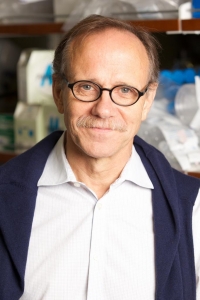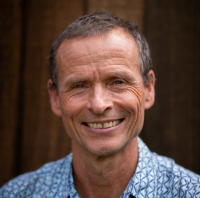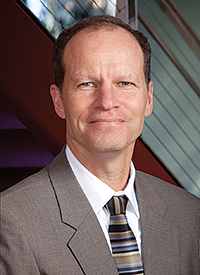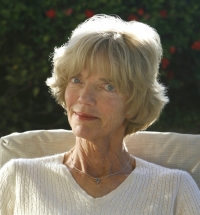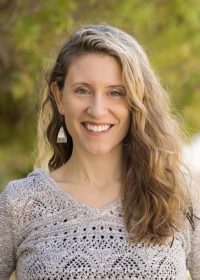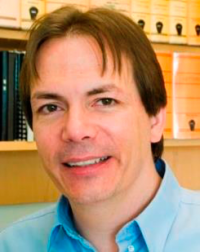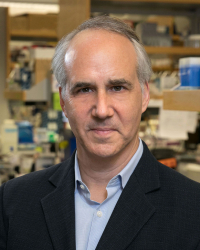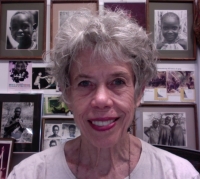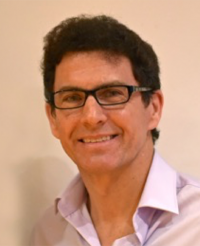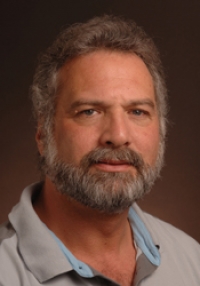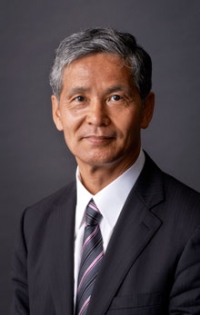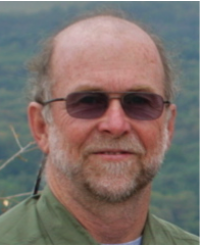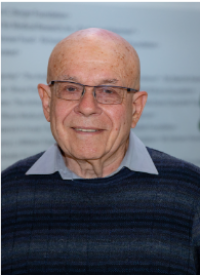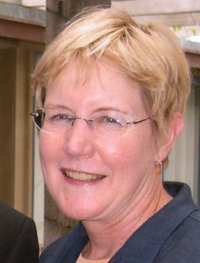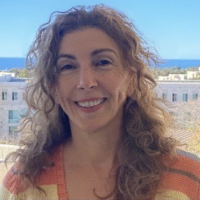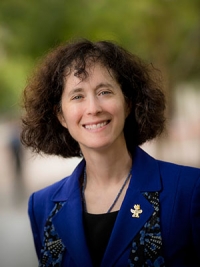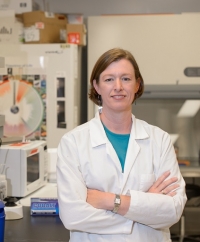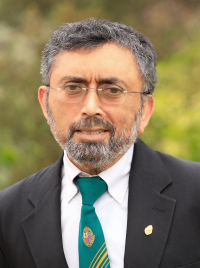CARTA 10th Anniversary: Revisiting the Agenda
Biographical Sketches: Co-Chairs
Salk Institute for Biological Studies
Fred H. Gage is a Professor in the Laboratory of Genetics and the past President (2018-2023) of the Salk Institute. He is an Adjunct Professor at UC San Diego, and emeritus Co-Director of CARTA. Dr. Gage concentrates on the adult central nervous system and unexpected plasticity and adaptability to environmental stimulation that remains throughout the life of all mammals. His work may lead to methods of replacing or enhancing brain and spinal cord tissues lost or damaged due to Neurodegenerative disease or trauma. Gage's lab showed that, contrary to accepted dogma, human beings are capable of growing new nerve cells throughout life. Small populations of immature nerve cells are found in the adult mammalian brain, a process called Neurogenesis. He is working to understand how these cells can be induced to become mature functioning nerve cells in the adult brain and spinal cord. They showed that environmental enrichment and physical exercise can enhance the growth of new brain cells and they are studying the underlying cellular and molecular mechanisms that may be harnessed to repair the aged and damaged brain and spinal cord. Gage is a member of the National Academy of Science and the Institute of Medicine.
UC San Diego
Pascal Gagneux is CARTA's Executive Co-Director, a Professor of Pathology and Anthropology, and the Department Chair of Anthropology at UC San Diego. He is interested in the evolutionary mechanisms responsible for generating and maintaining primate molecular diversity. The Gagneux laboratory studies cell-surface molecules in closely related primates species. His focus is on glycans, the oligosaccharides attached to glycolipids and glycoproteins of the surfaces of every cell and also secreted into the extra-cellular matrix. Gagneux's laboratory is exploring the roles of molecular diversity in protecting populations from pathogens as well as potential consequences for reproductive compatibility. Dr. Gagneux’s interest is in how glycan evolution is shaped by constraints from endogenous biochemistry and exogenous, pathogen-mediated natural selection, but could also have consequences for sexual selection. Dr. Gagneux has studied the behavioral ecology of wild chimpanzees in the Taï Forest, Ivory Coast, population genetics of West African chimpanzees, and differences in sialic acid biology between humans and great apes with special consideration of their differing pathogen regimes. In 2011, while Associate Director of CARTA, Dr. Gagneux helped to establish a graduate specialization in Anthropogeny at UC San Diego. This wholly unique graduate specialization is offered through eight participating graduate programs in the social and natural sciences at UC San Diego.
Biographical Sketches: Speakers
University of California, San Diego
Dr. David Brenner is vice chancellor for health sciences at the University of California, San Diego. In this role, he leads the School of Medicine, Skaggs School of Pharmacy and Pharmaceutical Sciences at University of California, San Diego, and UC San Diego Health.
A distinguished physician-scientist and leader in the field of gastroenterological research, Dr. Brenner first joined UC San Diego Health in 1985 as a gastroenterology fellow, later joining the School of Medicine faculty, and serving as a physician at Veterans Affairs (VA) San Diego Healthcare System. He also served as a Pew Scholar in the Biomedical Sciences and a Clinical Investigator in the VA system. In 1993, Dr. Brenner became professor and chief of the Division of Digestive Diseases and Nutrition at the University of North Carolina at Chapel Hill, where he continued to earn accolades for his patient care and research.
He was ultimately recruited to UC San Diego Health from Columbia University Medical Center College of Physicians and Surgeons, where from 2003 to 2007 he was Samuel Bard Professor and chair of the Department of Medicine, a member of the Herbert Irving Comprehensive Cancer Center, a member of the Columbia University Institute of Nutrition, and physician-in-chief of New York Presbyterian Hospital/Columbia.
Dr. Brenner’s professional memberships include the American Society for Clinical Investigation; the Association of American Physicians, for which he is currently President-Elect; the American College of Physicians; the American Gastroenterological Association, and the American Clinical and Climatological Association. He is also on the board of directors of two philanthropic foundations, the AlphaOne Foundation and the Alcoholic Beverage Medical Research Foundation. Dr. Brenner has also been published numerous times and serves on several editorial boards.
He earned his medical degree from the Yale University School of Medicine. After completing his residency at Yale-New Haven Medical Center, he served as a research associate in the Genetics and Biochemistry Branch of the National Institute of Diabetes and Digestive and Kidney Diseases (NIDDK) of the National Institutes of Health (NIH).
University of California, San Diego
Patricia Smith Churchland is a neurophilosopher, now retired from the University of California San Diego, and an Adjunct Professor at the Salk Institute. She focuses on how discoveries in neuroscience impact traditional ideas about ourselves and how philosophers can usefully collaborate with scientists. She wrote the pioneering book, Neurophilosophy (MIT Press, 1986), and is co-author with T. J. Sejnowski of The Computational Brain (MIT Press, 1992). Her current work focuses on morality and the social brain: Braintrust: What Neuroscience tells us about Morality (Princeton University Press, 2011) and Conscience: The Origins of Moral Intuition (W. W. Norton & Company, 2019). She won a MacArthur Prize in 1991, the Rossi Prize for neuroscience in 2008, and the Prose Prize for science for Braintrust.
Extended interviews can be found on YouTube, The Science Network, and on Serious Science.
University of Nevada, Las Vegas
Alyssa Crittenden is a human behavioral ecologist and nutritional anthropologist who has worked with the Hadza hunter-gatherers of Tanzania since 2004. Her primary research interest is the study of the evolution of human behaviors as a function of socioecological context. The majority of her work explores the intersection of diet, life history, and sociality during human evolution. Her research foci include: evolution of the human diet; evolution of childhood; children’s foraging and food sharing; nutritional and behavioral correlates of cooperative breeding; life history theory. She is currently Vice Provost for Graduate Education; Dean of the Graduate College; and Professor of Anthropology at University of Nevada, Las Vegas and serves on the CARTA External Advisory Board.
University of Washington School of Medicine
Evan Eichler, PhD, is a Professor and Howard Hughes Medical Institute Investigator in the Department of Genome Sciences, University of Washington School of Medicine, and serves on the CARTA External Advisory Board. He graduated with a B.Sc. Honours degree in Biology from the University of Saskatchewan, Canada, in 1990. He received his PhD in 1995 from the Department of Molecular and Human Genetics at Baylor College of Medicine, Houston, Texas. After a Hollaender postdoctoral fellowship at Lawrence Livermore National Laboratory, he joined the faculty of Case Western Reserve University in 1997 and later the University of Washington in 2004. He was a March of Dimes Basil O’Connor Scholar (1998–2001), appointed as an HHMI Investigator (2005), awarded an AAAS Fellowship (2006) and the American Society of Human Genetics Curt Stern Award (2008), and elected to the National Academy of Sciences (2012) and the National Academy of Medicine (2017). He is an editor of Genome Research and has served on various scientific advisory boards for both the NIH and NSF. His research group provided the first genome-wide view of segmental duplications within human and other primate genomes and he is a leader in an effort to identify and sequence normal and disease-causing structural variation in the human genome. The long-term goal of his research is to understand the evolution and mechanisms of recent gene duplication and its relationship to copy number variation and human disease with a specific emphasis on the genetic architecture of autism and neurodevelopmental delay.
University of California, Los Angeles
Daniel Geschwind is the Gordon and Virginia MacDonald Distinguished Professor of Neurology, Psychiatry and Human Genetics at UCLA and serves on the CARTA External Advisory Board. In his capacity as Senior Associate Dean and Associate Vice Chancellor of Precision Health, he leads the Institute for Precision Health (IPH) at UCLA. In his laboratory, his group has pioneered the application of systems biology methods in neurologic and psychiatric disease, with a focus on autism spectrum disorders (ASD) and neurodegenerative conditions. His laboratory has made major contributions to identifying genetic causes of ASD, defining the molecular pathology of ASD and allied psychiatric disorders, and has worked to increase diversity in ASD research. His work in dementia is focused on the mechanisms of tauopathies, where his laboratory is developing novel therapeutic approaches.
Dr. Geschwind sits on editorial boards of Cell, Science and Neuron, and is among the highest cited neurologists in the world. He has received several awards for his laboratory’s work including the American Neurological Association (ANA) Derek Denny-Brown Neurological Scholar Award, most recently the Society of Biological Psychiatry Gold Medal Award and the American Academy of Neurology’s 2022 Cotzias Lecture and Award and is an elected Member of the American Association of Physicians and the National Academy of Medicine.
University of Utah
Kristen Hawkes is Distinguished Professor of Anthropology at the University of Utah. Her principle interests are the evolutionary ecology of hunter-gatherers and human evolution. She studies age and sex differences in behavior, using comparisons between people and other primates, paleoanthropology and evolutionary modeling to develop and test hypotheses about the evolution of human life histories and social behavior. Hawkes has pursued ethnographic fieldwork in highland New Guinea, Amazonia, and eastern and southern Africa. She is a member of the Scientific Executive Committee of the Leakey Foundation, the American Academy of Arts and Sciences, and the National Academy of Sciences.
Harvard University
Joe Henrich is currently a Harvard Professor and Chair of the Department of Human Evolutionary Biology and serves on the CARTA External Advisory Board. Before moving to Harvard, he was a professor of both Economics and Psychology at the University of British Columbia, where he held the Canada Research Chair in Culture, Cognition and Coevolution. His research deploys evolutionary theory to understand how human psychology gives rise to cultural evolution and how this has shaped our species’ genetic evolution. Using insights generated from this approach, Professor Henrich has explored a variety of topics, including economic decision-making, social norms, fairness, religion, marriage, prestige and cooperation. He’s conducted fieldwork in Peru, Chile and in the South Pacific, as well as having spearheaded several large comparative projects. In 2016, he published The Secret of Our Success: How culture is driving human evolution, domesticating our species, and making us smart. In 2018, the Social and Personality Psychology Society awarded Henrich and his team the Wegner Prize for Theoretical Innovation. Henrich is also a senior fellow in the Canadian Institute for Advanced Research (CIFAR).
Arizona State University
William "Bill" Kimbel (d. 2022) was a renowned paleoanthropologist specializing in Plio-Pleistocene hominid evolution in Africa. He received his Ph.D. from Kent State University. He was Associate Curator and Head of Physical Anthropology at the Cleveland Museum of Natural History (1981-1985) before joining the Institute of Human Origins (IHO) in Berkeley, California, in 1985. In 1997, IHO relocated to Arizona State University, where Kimbel served as its Director and Virginia M. Ullman Professor of Natural History and the Environment in the School of Human Evolution and Social Change. For more than 25 years, Kimbel conducted research on Australopithecus and early Homo in Africa; Neandertals in the Middle East; the evolution of hominin skull form and function; and concepts of biological systematics as applied to paleoanthropological problems. From 1990, he co-directed or directed research at the Hadar hominin site in the Afar region of Ethiopia. Kimbel was elected Fellow of the American Association for the Advancement of Science in 2005.
Northwest University, Xi'an, China
Tetsuro Matsuzawa is a former Director of the Primate Research Institute of Kyoto University, Japan. He is currently the Academic Advisor of Chubu Gakuin University, Japan, the Visitor in Psychology at California Institute of Technology, the USA, and the Invited professor of Northwest University in Xi'an, China. Matsuzawa studies chimpanzee intelligence both in the laboratory and in the wild. His laboratory work is known as "Ai project". Since 1977, it focuses on the language-like skills, the concept of number, and the working memory: The participants are a 47-year-old female chimpanzee named Ai, and her 24 year-old son named Ayumu, and others live in the community of 11 chimpanzees including 3 generations. The working memory of young chimpanzees can be better than humans (https://www.youtube.com/watch?v=ktkjUjcZid0). The fact led him to the "Cognitive Tradeoff Hypothesis". In his parallel effort, Matsuzawa has also studied wild chimpanzees at Bossou and Nimba, Republic of Guinea, West Africa, since 1986. The Bossou chimpanzees are known to use a pair of stones as hammer and anvil to crack open oil-palm nuts. His long-term research revealed the topics like the 100% lateralization of handedness of using a stone hammer, the critical period of learning nut-cracking at the age 3 to 5, and the social learning called "Education by Master-Apprenticeship", grand-mothering in chimpanzees, etc. Matsuzawa tries to synthesize the field work and the laboratory work to understand the mind of chimpanzees, our evolutionary neighbors. He has received several prizes including the Purple Ribbon Medal of Honor, the Jane Goodall Award, Person of Cultural Merit, Japan. He has published many articles and books such as Primate Origins of Human Cognition and Behavior (Springer, 2001), Cognitive Development in Chimpanzees (Springer, 2006), The Mind of the Chimpanzee (Chicago University Press, 2010), and Chimpanzees of Bossou and Nimba (Springer, 2011).
UC San Diego
Jim Moore is an emeritus associate professor of the Department of Anthropology at UC San Diego. His research is on the behavioral ecology of modern primates, with specific interest in the use of insights gained from such work to aid our understanding of Plio-Pleistocene hominins. For most of his career, this work has been carried out on savanna-living chimpanzees at Ugalla in western Tanzania, as a member of the Ugalla Primate Project (now https://www.gmerc.org/). He also has written extensively about the relationship between demography and behavior (specifically, nepotism and dispersal) in primates.
Ugalla is one of the driest and most open sites at which chimpanzees live, and is one of only three active savanna chimpanzee study sites. It has a full complement of predators (lion, leopard, hyena and wild dog) as well as elephant, zebra, roan and at least seven other species of primate. The main study community has over 60 individuals; unfortunately (but interestingly) the prevalence of SIVcpz (the chimpanzee version of HIV) is about 30%. Population density is less than 1/20th of forested sites like Gombe or Kibale.
Understanding how chimpanzee behavior and social structure is influenced by adaptation to savanna life (either directly by the distribution of resources and predators, or indirectly via the effects of population density) can help us understand the scope of chimpanzee biocultural adaptation, as well as help generate, refine, and hopefully test models of early hominin evolution in very similar savanna-woodland environments.
University of California, San Diego
David M. Perlmutter is a professor emeritus in the Department of Linguistics and the Interdepartmental Program in Cognitive Science at UC San Diego. His research in linguistic theory addresses the question of how structural differences among human languages can be formally characterized, as well as the limits to such variation. Perlmutter has worked extensively on the syntax of a wide variety of languages and especially on the role of grammatical relations in clause structure. He has also worked on the phonology and morphology of American Sign Language (ASL). He has served as president of the Linguistic Society of America (LSA) and on the editorial boards of four professional journals. Perlmutter has held fellowships from the Guggenheim and Killam Foundations, the National Endowment for the Humanities, the University of California, and the Center for Advanced Study in the Behavioral Sciences. He has held visiting professorships in France and Canada, the Edward Sapir Professorship at the Linguistic Institute of the Linguistic Society of America, and the Richard Turner Professorship of the Humanities at the University of Rochester. He is a fellow of the Linguistic Society of America and of the American Academy of Arts and Sciences.
UC San Diego
Margaret Schoeninger is Distinguished Professor Emerita of Anthropology at UC San Diego, a Research Archaeologist in the Glenn Black Laboratory of Archaeology at Indiana University, and Emerita Co-Director of CARTA. She has done fieldwork in North America, Mexico, Pakistan, India, Kenya, and Tanzania as well as laboratory research on carbon, nitrogen, and oxygen stable isotope ratio analysis in biological tissues and food component analysis of traditional foods. Her major interest is in the evolution of human diet particularly as it informs our understanding of the appearance and evolution of the human lineage.
Salk Institute for Biological Studies
Terrence Sejnowski is a Howard Hughes Medical Institute Investigator and professor and director of the Computational Neurobiology Laboratory at The Salk Institute. He is also professor of biology and an adjunct professor of physics, neurosciences, psychology, cognitive science, and computer science and engineering at UC San Diego. He is director of the Institute for Neural Computation and director of Training Programs in Cognitive Neuroscience and Computational Neurobiology at UC San Diego and serves on the CARTA External Advisory Board. The goal of his research is to build linking principles from brain to behavior using a combination of theoretical and experimental approaches ranging from the biophysical to the systems level. He is founding editor of Neural Computation and President of the Neural Information Processing Systems Foundation. He is a past recipient of the Presidential Young Investigator Award, and was Wiersma Visiting Professor of Neurobiology and a Sherman Fairchild Distinguished Scholar at the California Institute of Technology, and is a fellow of the Institute of Electrical and Electronic Engineers. With Patricia Churchland, he co-authored The Computational Brain (Bradford Books, 1992). He was elected to the Institute of Medicine in 2008, to the National Academy of Sciences in 2010, and to the National Academy of Engineering in 2011. He is one of only ten living persons to be a member of all three national academies.
UC San Diego
Katerina Semendeferi is Professor of Anthropology and Director of the Laboratory for Human Comparative Neuroanatomy at UC San Diego. She is CARTA Co-Director and elected fellow of the American Association for the Advancement of Science. Semendeferi’s studies of the fronto-limbic circuitry showed that the relative size of the frontal cortex is remarkably similar across apes and humans and that evolutionary changes are found in some, but not all, regions of the human frontal lobe and amygdala. Her laboratory explores links between the phylogenetically reorganized brain regions and vulnerabilities observed in atypical human neurodevelopment (Autism and Williams Syndrome). Semendeferi has been involved with multiple lines of research in human evolution, including the fossil record, and pioneered the application of noninvasive imaging tools to the study of the brain of the apes. She maintains an interest in bringing together multiple fields of inquiry including efforts to bridge classical quantitative neuroanatomy with the field of induced pluripotent stem cells and brain organoids.
University of California, San Diego
Elizabeth H. Simmons is the Executive Vice Chancellor for Academic Affairs at UC San Diego. She is the institution’s second-ranking executive and serves as chief academic officer, overseeing academic programs and policies as well as academic personnel services across general campus. Simmons is passionate about advancing the goals of UC San Diego’s strategic plan which emphasizes excellence in education, research and public service, and the commitment to equity, diversity and inclusion. Simmons is also a theoretical high-energy physicist and Distinguished Professor of Physics at UC San Diego. She is currently studying how physics beyond the Standard Model might manifest in experiments in progress at the CERN Large Hadron Collider. Prior to joining UC San Diego, Simmons served as Associate Provost for Faculty and Academic Staff Development, Dean of Lyman Briggs College, and University Distinguished Professor of Physics at Michigan State University.
Arizona State University
Anne Stone is a Regents' Professor in the School of Human Evolution and Social Change at the Arizona State University and serves on the CARTA External Advisory Board. Her specialization and main area of interest is anthropological genetics. Currently, her research focuses on population history and understanding how humans and the great apes have adapted to their environments, including their disease and dietary environments. This has three main strands: (a) Native American population history, (b) the evolutionary history of the Great Apes, and (c) understanding the co-evolutionary history of mycobacteria (specifically Mycobacterium tuberculosis and M. leprae, the causative agents of tuberculosis and leprosy, respectively) with human and non-human primates. Dr. Stone received undergraduate degrees in archaeology and biology from the University of Virginia. She has a Ph.D. in anthropology from the Pennsylvania State University. During her graduate study, she received a Fulbright scholarship to study at the Ludwig Maximillian University in Munich, Germany with Dr. Svante Pääbo. After completing her Ph.D., she received a National Institutes of Health NRSA postdoctoral fellowship to work with Dr. Michael Hammer at the University of Arizona. Before joining the faculty at ASU in 2003, Professor Stone taught at the University of New Mexico. In 2011, she was elected a fellow of the American Association for the Advancement of Science, and in 2016, she was elected to the National Academy of Sciences. Stone has served on the editorial boards of the American Journal of Physical Anthropology and the Journal of Human Evolution, and currently serves as a senior editor of Molecular Biology and Evolution.
University of Pennsylvania, Perelman School of Medicine
Sarah Tishkoff is the David and Lyn Silfen University Professor in Genetics and Biology at the University of Pennsylvania, holding appointments in the School of Medicine and the School of Arts and Sciences. She is also the Director of the Penn Center for Global Genomics & Health Equity in the Department of Genetics and serves on the CARTA External Advisory Board.
Dr Tishkoff studies genomic and phenotypic variation in ethnically diverse Africans. Her research combines field work, laboratory research, and computational methods to examine African population history, the genetic basis of anthropometric, cardiovascular, and immune-related traits, and how humans have adapted to diverse environments and diets.
Dr Tishkoff is a member of the National Academy of Sciences, the American Academy of Arts and Sciences, and the National Academy of Medicine. She is a recipient of an NIH Pioneer Award, a David and Lucile Packard Career Award, a Burroughs/Wellcome Fund Career Award, the ASHG Curt Stern Award, and a Penn Integrates Knowledge (PIK) endowed chair. She is on the NAS Board of Global Health and the Scientific Advisory Board for the Packard Fellowships in Science and Engineering, and is on the editorial boards at Cell, PLOS Genetics, and G3 (Genes, Genomes, and Genetics).
Her research is supported by grants from the National Institutes of Health, the Chan Zuckerberg Institute, the American Diabetes Association, and the Pennsylvania Department of Health.
UC San Diego School of Medicine
Ajit Varki is a Distinguished Professor of Medicine and Cellular & Molecular Medicine, Emeritus Co-Director of CARTA, Emeritus Co-Director of the Glycobiology Research and Training Center at UC San Diego, and Adjunct Professor at the Salk Institute. He received basic training in physiology, medicine, biology, and biochemistry at the Christian Medical College (CMC), Vellore, The University of Nebraska, and Washington University in St. Louis. He also has formal training and board certification in internal medicine, hematology, and oncology. Varki is the executive editor of Essentials of Glycobiology (Cold Spring Harbor Press, 4th Edition, 2022) and is recipient of a MERIT award from the NIH, and an American Cancer Society Faculty Research Award. Honorific elections include the American Academy of Arts and Sciences, the National Academy of Medicine, the American Society for Clinical Investigation, and the Association of American Physicians. He is also recipient of the three highest honors in his field, the Karl Meyer Award of the Society for Glycobiology, the International Glycoconjugate Organization Award and the Rosalind Kornfeld Award for Lifetime Achievement in Glycobiology. He is recognized for creating the first major open access research journal (J. Clin. Invest., 1996) as well as the first major open access textbook (Essentials of Glycobiology, 2009). He was honored with the Old Cottonian of Eminence Award at the 150th Anniversary of Bishop Cotton Boys School, Bangalore, India, (2015) as well as a Distinguished Faculty Medal and Oration at his medical school alma mater, CMC, Vellore. Significant past appointments include: Co-Head, UC San Diego Division of Hematology-Oncology; President of the Society for Glycobiology; Editor-in-Chief of the Journal of Clinical Investigation; Interim Director of the UC San Diego Cancer Center, President of the American Society for Clinical Investigation, and UC San Diego Associate Dean for Physician-Scientist Training. Varki's research interests are focused on a family of cell surface sugars called sialic acids, and their roles in biology, evolution and disease. Currently, active projects are relevant to the roles of sialic acids in microbial infectivity, the regulation of the immune response, the progression and spread of tumors, aging, and unique aspects of human evolution. His group is particularly intrigued to find multiple interrelated differences in sialic acid biology between humans and our closest evolutionary cousins, the "great apes." These differences are a signature of the events that occurred during the last few million years of human evolution, and appear to be relevant to understanding several aspects of the current human condition, both in health and disease. Varki’s book, Denial (Twelve, Hachette Books, 2013), explores a novel "Mind Over Reality Transition” (MORT) theory that denying reality and personal mortality was a key step in allowing the emergence of a full theory of mind, and in the origin of our species.
